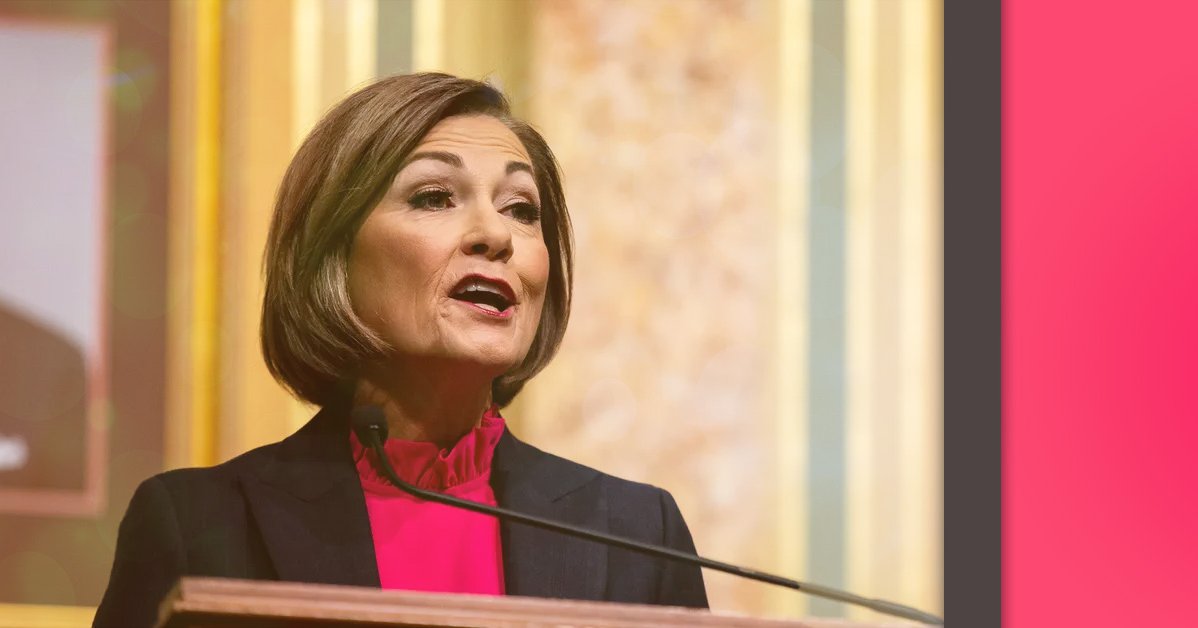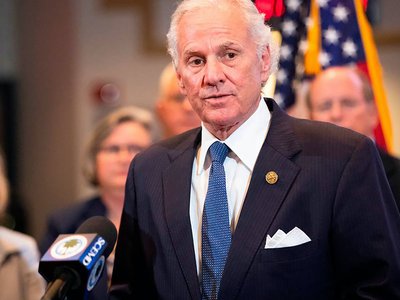As he delivered his State of the Union address against a backdrop of war, historic levels of inflation, and rising energy prices, President Biden outlined a slate of costly federal “solutions.” By contrast, Iowa governor Kim Reynolds, who delivered the official response to the president’s speech, showcased how state leaders are delivering meaningful solutions to Americans right now — without waiting on those operating within the bureaucratic D.C. bubble.
Just hours before delivering her response to the president, Governor Reynolds signed into law the largest tax cut in Iowa history. It provides an estimated $2 billion in tax relief, which is the largest tax-reform package, and in our opinion, the most impressive policy accomplishment of any state so far in 2022.
Highlights of Iowa’s tax-reform plan include collapsing nine personal income-tax brackets (with a current top rate of 8.53 percent) into a substantially lower and flat rate of 3.9 percent. Taxes on business income will also be lowered dramatically by flattening three tax brackets (with a top rate of 9.8 percent) into a single 5.5 percent rate. Additionally, Iowa will no longer tax retirement income. The state is also in the process of phasing out its hated death tax, which is especially damaging to farmers and small-business owners. These are all significant pro-growth changes to the current tax structure in Iowa.
In addition to the governor, free-market leaders in the Iowa house and senate are to be commended for their leadership. On the other side of the fiscal coin is spending, and their sensible budgeting practices — even as federal aid flowed “freely” to the states throughout the pandemic — helped turn the dream of tax reform into a reality. By January of this year, the state was running a $1.24 billion surplus, and its reserves were full. That meant that the Taxpayer Relief Fund, which was set up by previous tax-reform efforts, was primed with over $1 billion for income-tax reductions, with another $1 billion expected by the end of the year.
After Iowa’s other successful tax reforms in recent years, this major overhaul is certain to make the Hawkeye State’s tax code more competitive and improve the state’s economic outlook. Moreover, Iowa’s success might very well be the spark that ignites a new tax rebellion across America’s heartland, when lawmakers in surrounding states such as Wisconsin, Nebraska, Minnesota, and Missouri quickly realize they need to keep up with Iowa — or risk falling behind by standing still.
These policy improvements are aimed directly at solving for one of Iowa’s biggest problems. In recent years, it has struggled with a shrinking population and has failed to attract new residents.
Data from Rich States, Poor States confirms positive migration patterns toward low-tax states — and particularly the nine states that go without a personal income tax altogether. The no-income-tax states have outperformed their high-tax counterparts on key economic measures of success such as wage growth and population growth. Of the nine states with no personal income tax, eight experienced positive net domestic migration in the recent 2021 Census estimates, totaling hundreds of thousands of new taxpayers for those states. On the other side of the equation, many of the states with the highest personal income tax rates, such as New York and California, experienced massive net domestic out-migration last year. By significantly lowering taxes on income, Iowa will be well positioned to attract new residents and job creators.
As Iowa house speaker pro tempore John Wills explained, “Tax reform will make Iowa a more competitive state but, more importantly, it is the right thing to do for the citizens of Iowa.” In stark contrast to the endless tax-and-spend proposals in Washington, Governor Reynolds and principled lawmakers in Iowa are demonstrating true leadership in a challenging economic environment. It’s further evidence that our best policy solutions will always come from the states. As for Governor Reynolds, we think it’s safe to say we’ll be seeing more of her on the national stage very soon.






